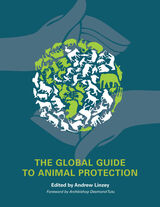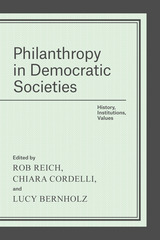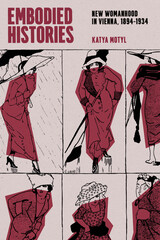3 books by Li, Chi

The Global Guide to Animal Protection
Edited by Andrew Linzey
University of Illinois Press, 2013
Raising awareness of human indifference and cruelty toward animals, The Global Guide to Animal Protection includes more than 180 introductory articles that survey the extent of worldwide human exploitation of animals from a variety of perspectives. In addition to entries on often disturbing examples of human cruelty toward animals, the book provides inspiring accounts of attempts by courageous individuals--including Jane Goodall, Shirley McGreal, Birute Mary Galdikas, Richard D. Ryder, and Roger Fouts--to challenge and change exploitative practices.
As concern for animals and their welfare grows, this volume will be an indispensable aid to general readers, activists, scholars, and students interested in developing a keener awareness of cruelty to animals and considering avenues for reform. Also included is a special foreword by Archbishop Desmond Tutu, urging readers to seek justice and protection for all creatures, humans and animals alike.
[more]

Philanthropy in Democratic Societies
History, Institutions, Values
Edited by Rob Reich, Chiara Cordelli, and Lucy Bernholz
University of Chicago Press, 2016
Philanthropy is everywhere. In 2013, in the United States alone, some $330 billion was recorded in giving, from large donations by the wealthy all the way down to informal giving circles. We tend to think of philanthropy as unequivocally good, but as the contributors to this book show, philanthropy is also an exercise of power. And like all forms of power, especially in a democratic society, it deserves scrutiny. Yet it rarely has been given serious attention. This book fills that gap, bringing together expert philosophers, sociologists, political scientists, historians, and legal scholars to ask fundamental and pressing questions about philanthropy’s role in democratic societies.
The contributors balance empirical and normative approaches, exploring both the roles philanthropy has actually played in societies and the roles it should play. They ask a multitude of questions: When is philanthropy good or bad for democracy? How does, and should, philanthropic power interact with expectations of equal citizenship and democratic political voice? What makes the exercise of philanthropic power legitimate? What forms of private activity in the public interest should democracy promote, and what forms should it resist? Examining these and many other topics, the contributors offer a vital assessment of philanthropy at a time when its power to affect public outcomes has never been greater.
The contributors balance empirical and normative approaches, exploring both the roles philanthropy has actually played in societies and the roles it should play. They ask a multitude of questions: When is philanthropy good or bad for democracy? How does, and should, philanthropic power interact with expectations of equal citizenship and democratic political voice? What makes the exercise of philanthropic power legitimate? What forms of private activity in the public interest should democracy promote, and what forms should it resist? Examining these and many other topics, the contributors offer a vital assessment of philanthropy at a time when its power to affect public outcomes has never been greater.
[more]

Re-examining the Cold War
U.S.–China Diplomacy, 1954–1973
Robert S. Ross
Harvard University Press, 2001
The twelve essays in this volume underscore the similarities between Chinese and American approaches to bilateral diplomacy and between their perceptions of each other’s policy-making motivations. Much of the literature on U.S.–China relations posits that each side was motivated either by ideologically informed interests or by ideological assumptions about its counterpart. But as these contributors emphasize, newly accessible archives suggest rather that both Beijing and Washington developed a responsive and tactically adaptable foreign policy. Each then adjusted this policy in response to changing international circumstances and changing assessments of its counterpart’s policies. Motivated less by ideology than by pragmatic national security concerns, each assumed that the other faced similar considerations.
[more]
READERS
Browse our collection.
PUBLISHERS
See BiblioVault's publisher services.
STUDENT SERVICES
Files for college accessibility offices.
UChicago Accessibility Resources
home | accessibility | search | about | contact us
BiblioVault ® 2001 - 2024
The University of Chicago Press









